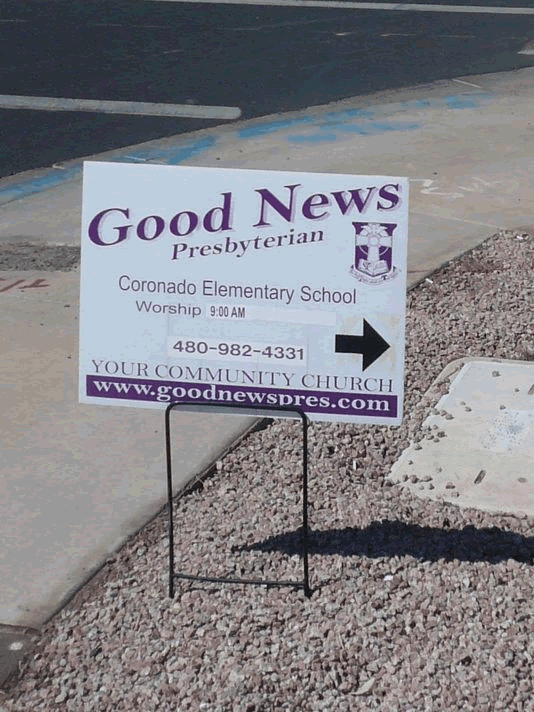A Sign of Things to Come?: Reed v. Town of Gilbert - Podcast
Free Speech & Election Law Practice Group Podcast
 On January 12, 2015, the U.S. Supreme Court heard oral argument in Reed v. Town of Gilbert. The Town of Gilbert has a sign code that imposes limits on the size, location, number, and duration of the signs advertising the weekly services of the Good News Community Church, whose pastor, Clyde Reed, sued. The sign code does not impose the same restrictions on political, ideological, and homeowners’ association signs. Does the First Amendment rule against content discrimination require a plaintiff to prove intentional discrimination by a government entity? Does the Town of Gilbert's assertion that its sign code lacks a discriminatory motive render its facially content-based sign code content-neutral and justify the code's differential treatment of religious signs?
On January 12, 2015, the U.S. Supreme Court heard oral argument in Reed v. Town of Gilbert. The Town of Gilbert has a sign code that imposes limits on the size, location, number, and duration of the signs advertising the weekly services of the Good News Community Church, whose pastor, Clyde Reed, sued. The sign code does not impose the same restrictions on political, ideological, and homeowners’ association signs. Does the First Amendment rule against content discrimination require a plaintiff to prove intentional discrimination by a government entity? Does the Town of Gilbert's assertion that its sign code lacks a discriminatory motive render its facially content-based sign code content-neutral and justify the code's differential treatment of religious signs?
- Hans A. von Spakovsky, Manager, Election Law Reform Initiative and Senior Legal Fellow, Edwin Meese III Center for Legal and Judicial Studies, The Heritage Foundation






